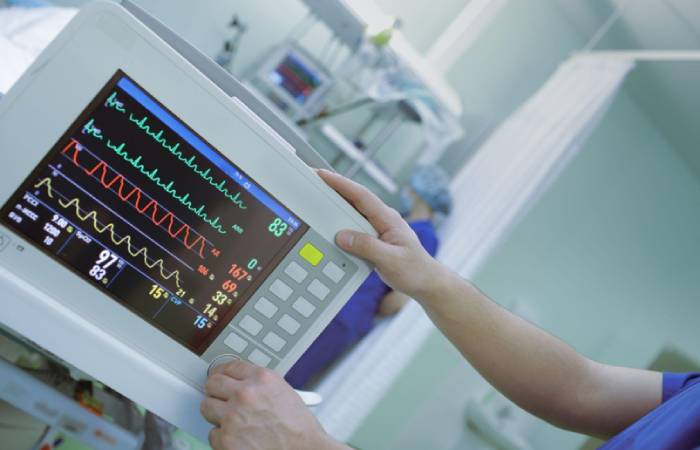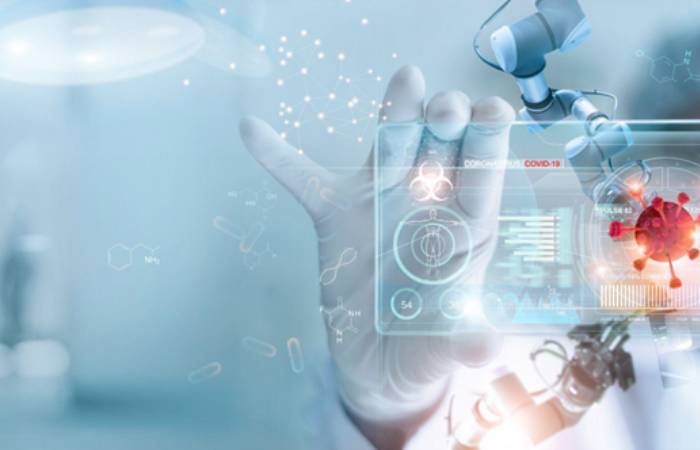The COVID-19 pandemic has touched everyone in one way or another. We have each been affected directly or indirectly through illness, worry or changes to how we worked, played and took care of our health.
Healthcare workers, as well as regular folks, found themselves particularly stressed while also coping with chafed skin from protective gear and frequent hand washing. Caring for our skin became even more important, and using products like a nourishing cuticle treatment or a hydrating face cream was vital.
Recent advances in healthcare technology were put to the test as COVID challenged our medical system as well as our access to healthcare. Artificial Intelligence (AI) has played a big part in healthcare recently. Perhaps it’s being used in healthcare more than you realize. Let’s learn about what AI is, how it was utilized during the outbreak and how it is advancing healthcare for everyone.
Table of Contents
What Is Artificial Intelligence?
Artificial Intelligence (AI) is sometimes also referred to as “machine learning.” AI is the process of computers channeling large amounts of data through complex algorithms, much like the human brain does. This process then allows computers to make suggestions, decisions and predictions.
We are already interacting with AI on a daily basis. When a streaming platform suggests what show you might like to watch next or your texting app is guessing at what words you might want to use next, you are interacting with artificial intelligence.
AI is part of our daily lives in other ways, such as:
- GPS and navigation apps process data about road conditions, traffic patterns, construction and your speed to plan the best route for you.
- Rideshare apps use AI to calculate wait times for customers.
- Summaries of videos are provided on streamlining platforms.
- Filters on social networking apps use AI and facial recognition to add features to photos and videos.
- The smart assistance devices in your home that you speak to every day use AI to understand your needs and respond in the most helpful ways.
- The spam filters in your email even use AI to determine what needs to be weeded out.
AI has been quietly transforming our daily lives for years and, without realizing it, we are coming to depend on it.

How Is AI Used in Healthcare?
Technology in healthcare continues to transform the medical system on a daily basis. Artificial Intelligence is part of the technology used by healthcare systems, as well as individual providers. AI processes huge amounts of data from a variety of sources to make our personal lives easier, and the same is happening in healthcare.
In healthcare, AI gathers data from a variety of sources, such as:
- Implanted devices such as pacemakers and defibrillators that store and share data with health care providers
- Blood sugar monitors that patients wear which gather data
- Wearable vital sign and activity monitors
- Devices that are ingested for GI conditions, which then gather data
- Remote patient monitoring
- Internet-connected inhalers in treating asthma and COPD
- Internet-connected contact lenses
- Robotic surgery devices
- Pharmaceutical data from prescriptions and refills
- Public health data gathered from testing
- Online symptom monitoring created by patients
This data is processed through AI, which then creates a database that can be accessed to track community-spread illness and severity of symptoms. It is also used for creating testing and treatment protocols that indicate where resources are needed most.
The information is utilized by companies and agencies that supply healthcare needs such as testing kits, personal protection equipment and human services. Using gathered data also helps pinpoint patients at a higher risk of dangerous outcomes, which then improves the decision-making process.

AI Uses During the Pandemic
During the COVID-19 pandemic, research has shown that AI was used to successfully determine when cases of pneumonia were caused by COVID, as opposed to pneumonia from other causes, by interpreting the results of chest CT scans and X-rays of patients.
AI was also used to help predict a particular patient’s risk of deterioration due to COVID so that appropriate treatments and medications could be used in a timely manner. On a larger scale, data processed with AI was used to predict trends in outbreaks. This helped policy makers in government to appropriately allocate resources in order to reduce fatalities.
Research on anti-viral medications and vaccines also used AI to speed the process of clinical trials in order to get life-saving medications to the public quicker. AI was also used to identify medications created for other purposes that would potentially be helpful for treating COVID.
AI and the Future of Healthcare
AI technology has made great strides in the realms of diagnosis and treatment, as well as prediction and monitoring of disease trends and contact tracing as part of public health decision-making.
The use of AI during the COVID-19 pandemic demonstrated many new real-world applications for AI in health care. Without the use of AI, the personal toll for many patients and their families would have been much higher and more devastating than it already was. The progress made by using AI can now be applied to preventive health care, disease treatment, research and public health going forward.

